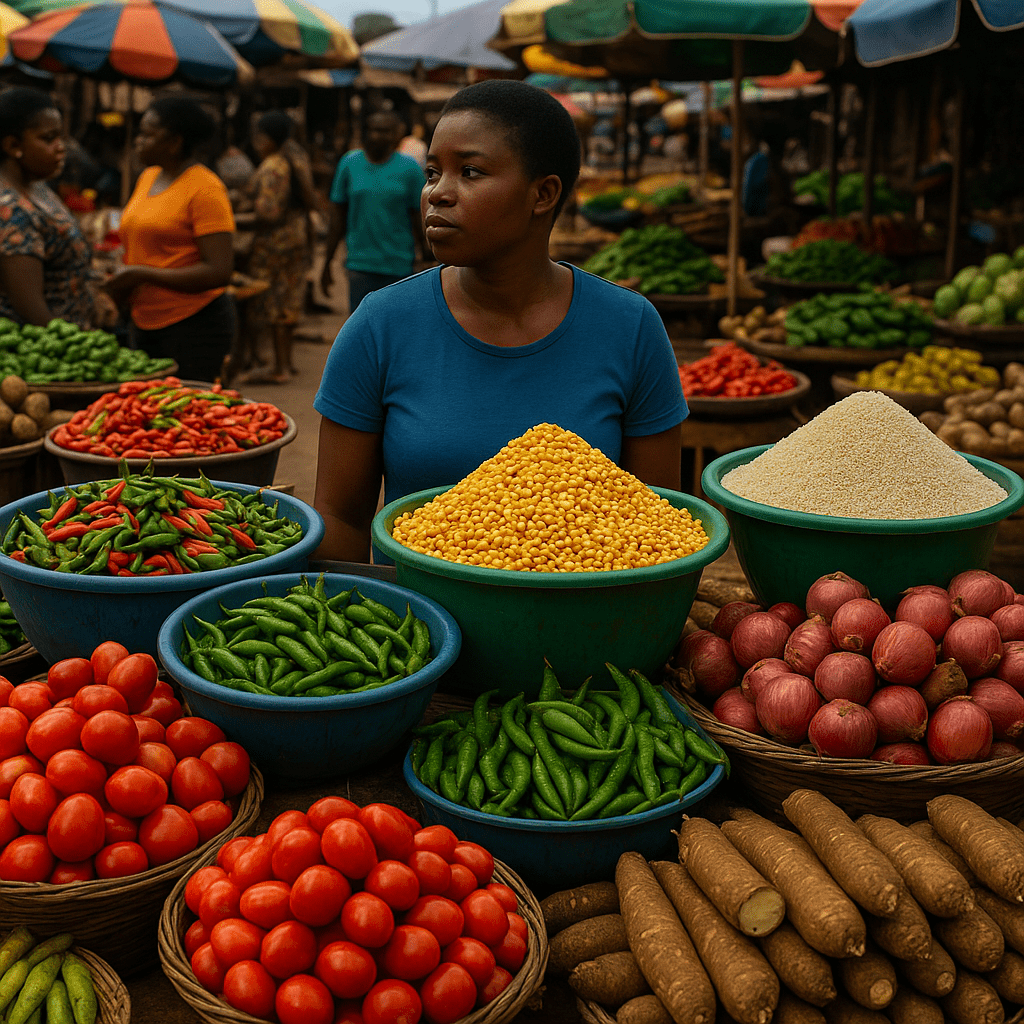Food is a basic necessity, and in Nigeria where the cost of living continues to rise, many people are constantly looking for ways to stretch their budget. One of the smartest ways to save money is by knowing where to buy affordable food items. While supermarkets and retail stores are convenient, traditional markets still offer the best deals for most foodstuffs.
In this article, we’ll explore the 10 cheapest markets to get food in Nigeria. These markets are known for offering quality produce at relatively lower prices. Whether you’re buying in bulk or just for your household, these markets can help you save money without compromising on quality.
1. Mile 12 Market – Lagos
Mile 12 Market in Lagos is one of the largest and cheapest food markets in Nigeria. It is particularly famous for wholesale prices on fruits, vegetables, and food ingredients like pepper, tomatoes, onions, and yam. Many retailers and restaurant owners source their food items here due to the affordability.
While the market can be crowded and busy, the prices make it worth it. With proper bargaining, you can get food at nearly half the price compared to retail shops in urban areas.
2. Ogbete Main Market – Enugu
Ogbete Market is the largest market in Enugu State and one of the most organized in Southeast Nigeria. The market caters to people from across the state and nearby towns. It offers a wide variety of foodstuffs including rice, beans, garri, vegetables, and spices at cheaper rates than supermarkets.
Traders here are used to bulk buyers, which means that if you’re purchasing in large quantities, you’re likely to get even better deals.
3. Bodija Market – Ibadan
Located in the heart of Ibadan, Oyo State, Bodija Market is a haven for food buyers. It’s known for its vast selection of grains, meat, fish, and fresh farm produce at affordable prices. It serves as a major hub for farmers and suppliers from the North and Middle Belt.
The market operates daily, and the prices are particularly lower during peak harvest seasons when there’s an abundance of food supply.
4. Dawanau Market – Kano
Dawanau Market in Kano is the largest grain market in West Africa. It is a go-to destination for wholesale buyers looking for maize, millet, rice, guinea corn, beans, and other cereals. Prices in Dawanau are incredibly competitive due to its proximity to agricultural producing areas.
If you’re looking to stock up on non-perishable foods for personal use or resale, Dawanau is a great option.
5. Oil Mill Market – Port Harcourt
Oil Mill Market is one of the busiest and cheapest markets in Rivers State. Open primarily on Wednesdays, the market offers food items at discounted rates because sellers come from rural areas and farmlands directly to sell their goods.
Items like garri, yam, fish, vegetables, crayfish, and palm oil are significantly cheaper here compared to urban Port Harcourt stores.
6. Zaki Biam Yam Market – Benue
Zaki Biam in Benue State is widely recognized as the biggest yam market in Nigeria. Benue is known as the “food basket of the nation,” and this market proves it. Traders from all over Nigeria buy yam in bulk from here at unbeatable prices.
Even though it’s more common for wholesalers, individuals can also take advantage of the cheap prices, especially during the harvest season between August and November.
7. Garki Ultra-Modern Market – Abuja
While Abuja is known for its high cost of living, Garki Market stands out for its affordability. Compared to other markets in the FCT, Garki offers competitive prices on fruits, vegetables, grains, and even meat and poultry.
Smart shoppers in Abuja know that going to Garki Market rather than supermarkets or malls helps them save a lot on monthly food expenses.
8. Ogige Market – Nsukka
Ogige Market is a prominent market in Nsukka, Enugu State. It caters largely to university students and local residents, which makes the sellers very price-conscious. Because of this, many foodstuffs like rice, beans, pepper, okra, and maize are sold at lower rates.
If you’re living around a university town, you can often find markets like Ogige where the prices are tailored to meet the needs of low-income earners and students.
9. Relief Market – Owerri
Relief Market is one of the most affordable markets in Imo State. With a large selection of local and imported food items, buyers can access fresh produce and dry foods at low prices. The market is well-organized and offers a range of choices, from organic farm produce to bulk grains and condiments.
Early morning shopping at Relief Market usually gives the best prices and freshest food.
10. Dugbe Market – Ibadan
Dugbe is another popular market in Ibadan known for food affordability. Although it’s slightly more commercial than Bodija, it offers amazing deals on perishable and non-perishable items. Many people shop here for weekly and monthly food stock-ups due to the pocket-friendly prices.
From locally processed palm oil to garri and vegetables, Dugbe Market is reliable for quality and affordability.
Tips for Buying Food Cheaply in Nigerian Markets
- Go early: Prices are lower in the morning when sellers are eager to make early sales.
- Buy in bulk: The more you buy, the more you save per unit.
- Negotiate: Bargaining is expected, and it can save you a lot.
- Avoid festive periods: Prices usually go up around Christmas, Easter, and Ramadan.
- Bring your own bags: Reduce extra costs by coming prepared with your own packaging.
Conclusion
With food prices rising nationwide, knowing the cheapest markets to buy from is an advantage every Nigerian should use. Whether you live in Lagos, Enugu, Kano, or Port Harcourt, there’s a market that offers cheaper prices for your basic food needs.
By exploring any of the 10 markets listed above, you can reduce your food expenses and stretch your budget further without compromising quality. Be smart, shop local, and save more.




Leave a Reply